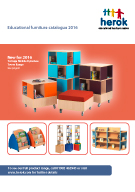At a time when fewer than half of all 8 to 14 year-olds have read a book in the last month, it is critical that all the resources available to support pupil achievement are being targeted effectively and used efficiently. The School Library Commission was jointly established by the National Literacy Trust and the Museums, Libraries & Archives Council to research into the importance of the school library in a child’s development, and if and how, school libraries could be improved.
Expert presentations were commissioned to review the evidence base for the impact on learning of school libraries and school library services as well as the current and future policy landscape and current levels of provision. In addition, consultation workshops and interviews were held with teachers, school librarians, head teachers, pupils, parents and academics, and 17,000 pupils participated in a survey to examine school library use and attitudes.
Young people interviewed for this report talked in detail about what they did in the library and how it supported their learning and helped them to develop their skills. They strongly identified with school libraries as motivating them to love and enjoy reading and supporting them in their desire to build their knowledge base and to find information. Young people who read above the expected level for their age are twice as likely to be school library users than young people who read below their age. This link is not necessarily causal but it does suggest that school libraries have a vital role to play in the reading patterns of those pupils who have higher literacy levels.
The report established a solid need for a well-run school library and for the impact on pupils’ literacy levels it could have when run well; enjoyment of reading; information literacy skills and access to knowledge; on their self-esteem, confidence, sense of safety and wellbeing in the school community. As a result whilst this report demonstrates why schools should have a school library or access to a school library service it focuses more on how all these services could learn from the best and ensure that all young people have access to the support they need to develop and succeed.
Evidence submitted contained examples of excellent practice in planning libraries which responded to the needs of young people. They can be characterised as comfortable and welcoming environments, offering: more social reading opportunities (book clubs, peer recommendations, drama and games based on reading); excellent book stocks which stimulated the reading of young people; more access to up-to-date technology; more targeted services aimed at meeting the particular needs of particular groups. By involving young people in the design, management and delivery of these services they feel an ownership of the school library and that it really did meet their needs.
This is a synopsis of the Commission’s findings, for the full report go to http://www.literacytrust.org.uk/policy/school_library_commission
For friendly advice and help planning an inspirational library space, go to www.herok.com




